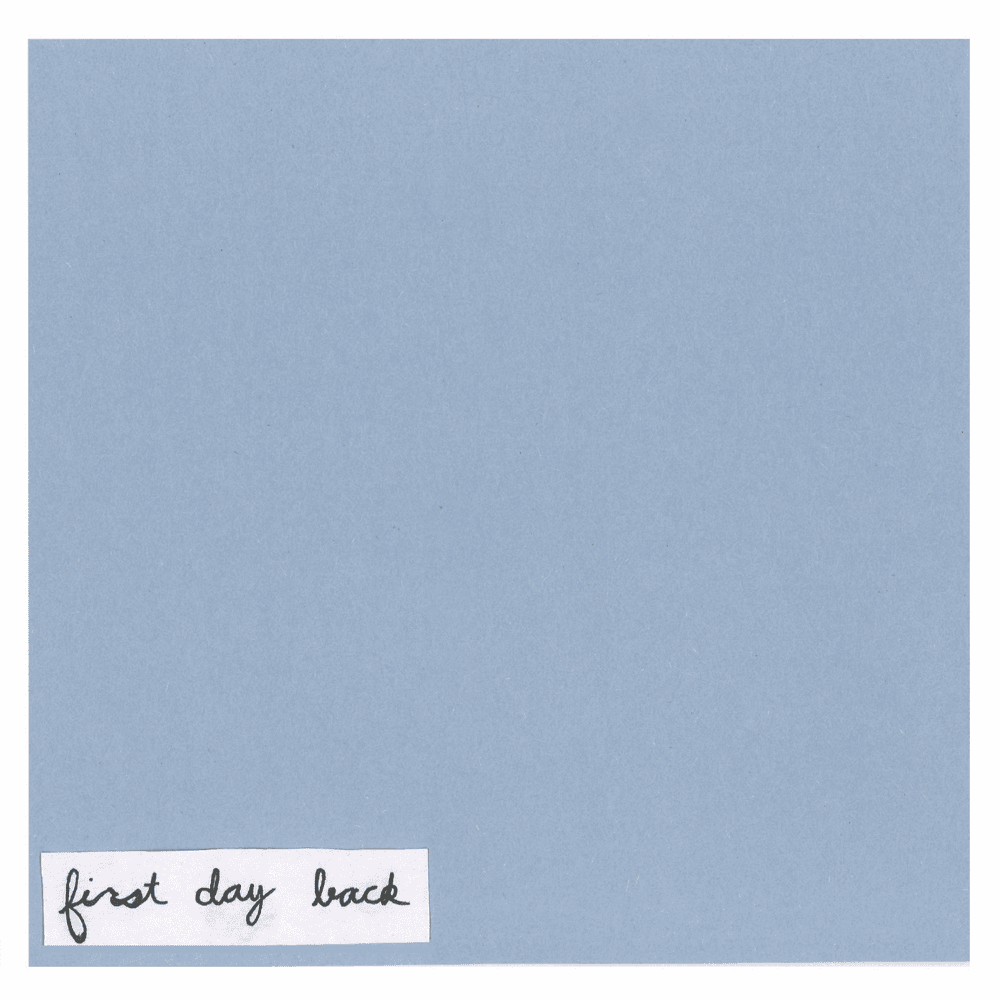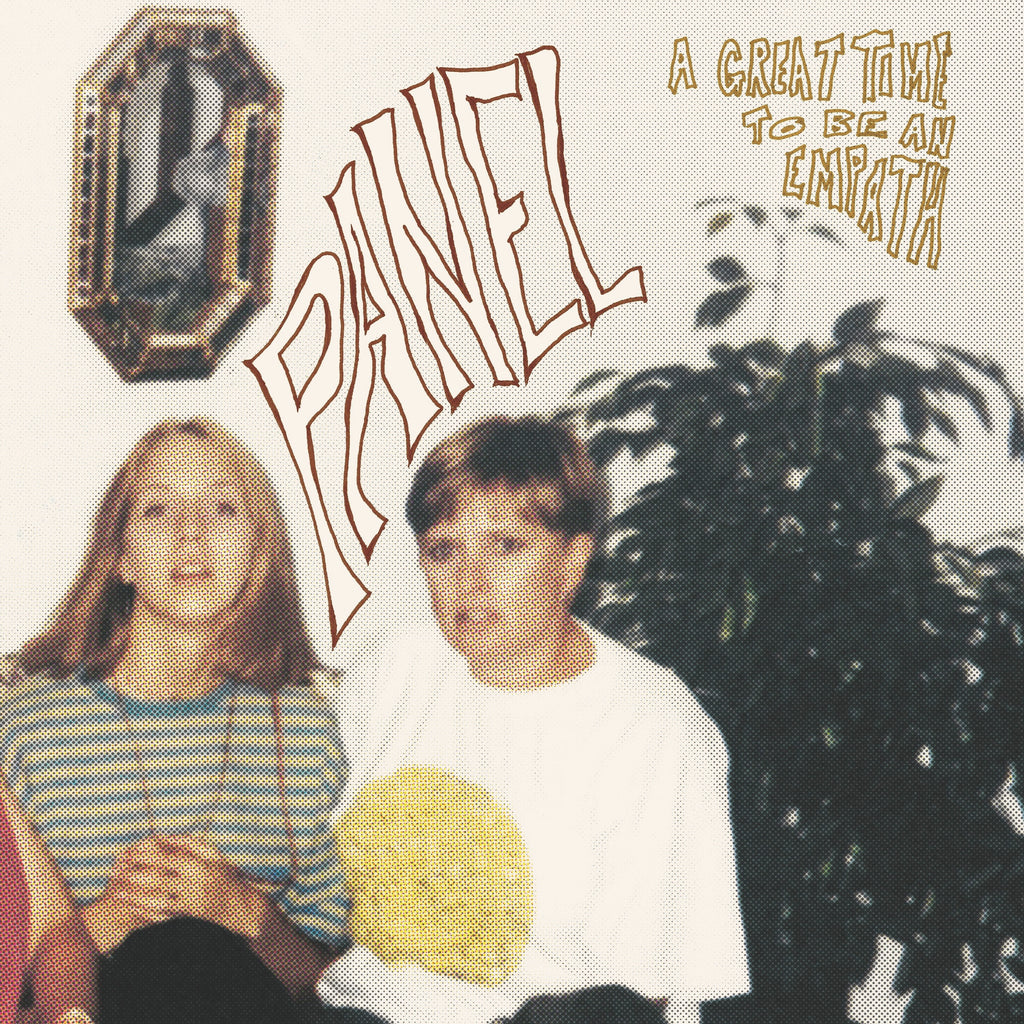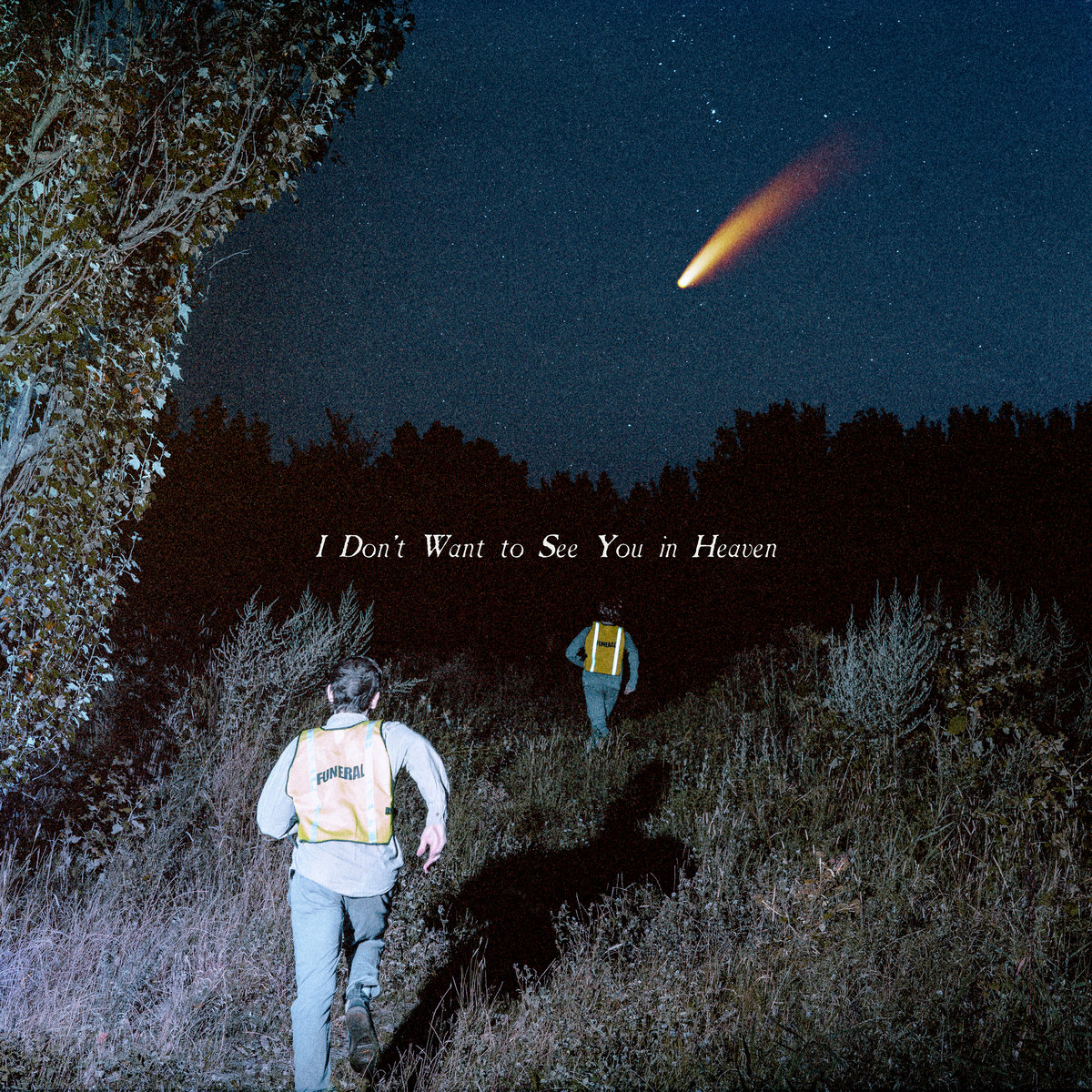The Best of Q2 2025
/We’re halfway through 2025, and it feels like my brain is contorting into shapes it was never meant to hold. Unlike my intro for our favorites of Q1, I’m going to try my best not to go on a screed, but it’s hard not to treat these roundups as little check-ins. It’s also hard not to be upset at the countless acts of violence, injustice, and just plain stupidity being carried out in our name and on our dollar. It’s hard to conceive of because sometimes our day-to-day feels so completely unchanged or mind-numbingly banal. Hell, some days are even great. Then that feels weird because you’re allowing yourself one ounce of joy in the company of friends and loved ones, and suddenly you snap back to the reality of the world we’re living in. You remember the machine you’re a part of, and you try your best to operate outside of it, but sometimes that machine feels absolute and inescapable.
I think what I’m trying to say is that this is a uniquely treacherous time to be alive, but there’s still beauty to be had. There’s salvation to be found in community, and there is support to be lent to those who need it. There’s art to share with each other, and that’s why we’re here.
This past month, a couple of our friends had a beautiful, healthy baby. Another couple got a brand new puppy who’s barely big enough to make it up a single stair. I went to a baseball game primarily to down a beer, a hot dog, and fistfuls of popcorn. I had my 32nd birthday and was surrounded by all my beloved friends as we shot each other with squirt guns and shook our booties to Rihanna. I went to a music festival and hugged someone I loved. I took pictures outside of a tobacco shop in Ohio called “Butt Hut.” I shared some delicious meals with my beautiful girlfriend and watched Shakespeare in the park with friends. These are all varying levels of significance, and some of them might seem more frivolous or trivial than others, but they’re all part of the same thing. Finding the time to experience joy and wonder and happiness, acknowledging those feelings, and sharing them with as many people as possible is what it’s all about.
With that in mind, please enjoy The Swim Team’s favorite albums from the last three months. Fifteen releases from fifteen artists, championed by fifteen different people. I hope you find something here to love.
First Day Back – Forward
Self-released
I’ve been an active participant in the emo scene for well over half my life at this point. I have seen its ebbs and flows, I’ve survived its famine years, and been relishing our current era of bounty. When one spends a long enough time being fully engrossed in the tides of genre, you begin to build a sense of which way the wind may start to blow. When I first heard The Arrival Note’s Vol. 2, I felt the tingle of an air pressure change, a movement in the sky that I surmised to be a harkening back to 90s emo that would find its way into our now burgeoning scene. Well, here we are, the first big gust to usher us towards our next few years of emo revival goodness. Actually, ‘revival’ doesn’t feel quite right. First Day Back’s debut effort is not them attempting to breathe life back into anything; it's all living, breathing experience, days and months and years and scattershot measurements of time clasped between moving string sections, moments pinched between their fret strings, memories weighing heavy on serenades and shouts.
Forward’s modus operandi, it seems, is to just be honest. Honest in feeling, honest in thought, honest in execution, and when all of that honesty starts condensing and collecting across the breadth of the album's thirty-four-minute runtime, the rain cloud accumulating over your spirit gets a spring-kissed summer shower. This album feels like a natural phenomenon in that way, and I think that with time and its tides, some kids in twenty years will point at this band and, through wide-eyed listening sessions of this album, want to find their own way through that same honesty. I'll be happy to press play on that one, too.
– Elias Amini
Turnstile – NEVER ENOUGH
Roadrunner Records
Turnstile’s summer blockbuster record, NEVER ENOUGH, has replenished for me the gigantic stadium rock feel from a band in their prime that I haven’t felt since the mid-2000s. It’s 45 minutes of crowd-pleasing summer rock action that scratches the itch of prime Red Hot Chili Peppers and Foo Fighters. NEVER ENOUGH is fully loaded with explosive melodic riffs and an ample number of sonic twists and turns.
“BIRDS” is an adrenaline-pumping jam if I ever heard one. The song moves faster than a muscle car driven by Dom Toretto; it’s Turnstile at their mosh-pitting best. I just want to break something or at least knock over a traffic cone at full force whenever this song comes on. The transitions are as smooth and seamless – being able to move from chunky guitar riffs to break beats at the drop of a hat makes for a thrilling listening experience. The best example I can give is “LOOK OUT FOR ME,” which flies by at 100 mph with Q101 rock radio riffs, then morphs into a minimalist synth club hit that is full-on transcendent.
This record can be listened to nonstop on runs through the park, while manning the grill, or even while meditating by the pool. NEVER ENOUGH’s sonic versatility is the Swiss-Army knife for rock music.
– David Williams
Careful Gaze – one day this will let you go
Self-released
Minneapolis rockers Careful Gaze have always been a little messy to categorize as far as genre is concerned. Generally, it’s fair to call them a mix of post-hardcore, metalcore, and heavy indie music. one day this will let you go feels special, shedding all of those labels to do something completely unique within their catalog. What we get is an ambient EP full of sound design, synths, and subdued vocals.
The first track, “you are the strongest that I know,” has a two-minute sound bath before vocalist Gabe Reasoner comes in to silently declare, “You should stay away from me.” They repeat the phrase until you realize that this is a break-up record borne out of the challenge of letting go of people you loved, or perhaps, still love. On the second track, Careful Gaze trades in the subdued energy of track one for trap hi-hats, a handclap snare, and swelling synths, creating a build that demands release in the form of the next song.
It’s on the closing title track where the emotional design of the record really shines. It challenges the listener to break composure while Gabe’s vocal delivery screams out, raising in intensity until the last line, dropping back down to close the record by saying “it’s fucked no matter what,” an acknowledgement that sometimes brokenness is just brokenness. There isn’t much hope here. This is simply the work of a broken person writing about brokenness.
This EP begs a few questions about Careful Gaze’s next full-length record. Will we see more of this lush sound design that’s being spotlighted on this EP? Will we get a resolution for the heartbreak we see here? It’s impossible to know what’s next, but I’m waiting with bated breath to see where this band will be landing when they hit the ground again.
– Noëlle Midnight
Panel – A Great Time to Be an Empath
Don’t Sing
With each spin of Panel’s debut album, A Great Time to Be an Empath, the more I feel the need to grab someone, shake them, and scream at them about the things Annie Sparrows’ songwriting makes me feel. Throughout this record, Sparrows aches for some sort of relief from the horrors of trying to exist sanely under conditions of absolute reality. The moment that hits the hardest for me is after the second verse of “Victoria” when she gently croons that titular name, and her voice is so full of desperate hope that someday she’ll be able to sit comfortably in her skin. “Victoria” does what I want every new song I hear to do, to leave me breathless and lost for words to describe what just happened and how the hell I could feel all of that in under two minutes. And it is not the only song on the record that makes me feel that way. It can’t be when the record opens the line “Everybody knows that the place to start / is before the end, before the part / where you began to go but you didn’t even know / it was the start of the lights out slip” spoken over a motorik rhythm that perfectly evokes the dissociative numbness that comes with living just to make it through the day and has a piano ballad as its centerpiece about a pets love performed like a lounge act. It’s a great time to listen to A Great Time to Be an Empath.
– Lillian Weber
Forest Spirit, Sun on Your Back – winnowing
Self-released
One way I try to remember each month is with a playlist of new-to-me music. In May, I heard “Out of Season” by Forest Spirit, Sun on Your Back. It’s from their 2023 debut album, and liberally abuses the stereo audio format to split each guitar beat, giving the song an interesting and intentionally disjointed character. This, among other bit-crushing, oversaturating, and noisy tricks, was intriguing enough for a whole album play. Luckily for me, that same month they released their sophomore LP, winnowing. This second effort explores the softer side of low-fidelity recording. There are still plenty of crunchy crescendos and haphazard buzzings throughout, but each song feels more considered. They back off the chaos of their first album to introduce a meticulous melange, which is acoustic-forward and ever so slightly polished. If you’re a fan of Wednesday, glass beach, or Hey, ILY, you’ll find something to love about Forest Spirit, Sun on Your Back.
– Braden Allmond
The Callous Daoboys – I Don’t Want To See You In Heaven
MNRK Records
I’ve had the pleasure of working at a lovely, albeit somewhat niche, museum since October, and I still find new little nooks, crannies, and didactics throughout the exhibits to keep me invested. Being a museum employee also grants complimentary access to other museums, such as The Brooklyn Museum, the Museum of Contemporary Art in Chicago, and the Seattle Art Museum, to name a few. However, one doesn’t need reciprocity to enter the Museum of Failure, an interactive auditory museum curated by the six-piece post-hardcore band The Callous Daoboys.
This museum is sprawling with different exhibits, ranging from the downright ridiculously heavy (“Tears on Lambo Leather,” “Full Moon Guidance,” “The Demon Of Unreality Limping Like A Dog”) to catchy (“Two-Headed Trout,” “Lemon,” “Distracted By The Mona Lisa”) to spacy (“Body Horror For Birds”). Some artifacts scare viewers while others will bring them to tears of laughter like the downright ridiculous A GAGA BOO AAGAA BOO BOO AAGAA in “Idiot Temptation Force.”
The crown jewel of this museum belongs to “III. Country Song In Reverse,” an almost twelve-minute colossus of sounds ranging from a two-minute ambient southern soundscape to thunderous breakdowns to an auto tuned repetition of “I Love You” culminating in frontman Carson Pace screaming, “I am worthy of the ark and I hope to god you can’t swim.”
There’s a lot of laughter, a lot of tears, and a lot of heavy shit in between. Is that not what life is? Beauty may be in the eye of the beholder, but what I marvel at in the Museum of Failure is a group of artists who play to all of their strengths without sacrificing their uniqueness. God bless The Callous Daoboys.
– Samuel Leon
MSPAINT – No Separation
Convulse Records
I used to work at a free museum that had a wax-coated sculpture in its sculpture garden. At 2 PM on the dot, every day, a mirrored skyscraper in a different neighborhood would aim a direct beam of light and heat onto this sculpture, melting it. But every day, the museum’s restoration team would fix it—kind of a standing battle with art and capital.
This is the stubborn determination that No Separation from Hattiesburg’s MSPAINT reminds me of. In their last release, 2023’s Post-American, MSPAINT dealt in potential energy, constantly building up momentum and threatening release. In No Separation, they release it, almost leering as they proclaim a positive future amongst the wasteland.
These past couple of months have been inundated with people talking about the boundaries of hardcore, and while all that’s been going on, MSPAINT has been digging under the genre and unearthing the unruly heartbeat that drives the sound. The result? No Separation. So what if it all melts? We’ll rebuild.
– Caro Alt
Pelican – Flickering Resonance
Run For Cover
If there’s one theme that echoes throughout Flickering Resonance, Pelican’s first new record in six years, it’s the beginning of a new era for the Chicago metal quartet. Many great artists work in trilogies, such as David Bowie’s series from Berlin in the 1970s, or U2’s collaborations with Brian Eno and Daniel Lanois in the 1980s. Flickering Resonance marks the seventh full-length album from Pelican, and the start of what could be a third album trilogy nearly twenty-five years into their career.
Their dynamic sound, established since 2003’s Australasia and perfected on 2009’s What We All Come To Need, continues through new catalog classics like “Gulch” and “Wandering Mind.” The explosive and theatrical passages on “Cascading Crescent” and “Pining For Ever” fill the room with whatever speakers they’re blasting on, helping paint a soaring, loud rock landscape with the rest of the LP. Pelican has been one of my home city’s most important bands to me, and their staying power has only strengthened with the release of Flickering Resonance, unleashed to a dark world now made much brighter.
– Logan Archer Mounts
Arm’s Length – There's A Whole World Out There
Pure Noise Records
At this point, there are few members left in the emo cognoscenti to sway regarding Arm’s Length’s mastery of the craft. Signing to genre-behemoth Pure Noise Records was merely a stepping stone before unleashing their sophomore LP, There’s A Whole World Out There, a record that features the group proving they’re anything but a one-album wonder. Admittedly, I was optimistically wary at first listen, because how does a group one-up a generational debut like Never Before Seen, Never Again Found? Thankfully, I was completely enamored by the rebuttal album on release day. What makes the Canada-based unit special is their knack for crafting something comprehensive and cohesive.
As is common in the emo genre, the band's initial full-length, NBSNAF, was lyrically condemned by its nostalgia-drunk tilt. The feeling is a drug – hard to quit and easy to get lost in. However, Arm’s Length find their way out on their newest LP, rooting themselves firmly in the present. Vocalist Allen Steinberg writes from hindsight's perspective this time around, and while this album is still very much sad, it takes a different outlook on it. Such is evident on heavy-hitting cuts like “The Wound,” where Steinberg pleads, “Time will heal me, will I stick around to see it?”
If I had to whittle down this album to 300 words or less (which is what I’m attempting), I’d say it’s largely about being overtly self-aware and viewing past mistakes through a magnifying lens. Being aware enough to recognize and admit that, yeah, there is a whole world out there waiting for me, but right now, it appears too large for me to conquer. So, this album begs the question: if there is a whole world out there, where do we go from here?
– Brandon Cortez
honeybee – midtown girl
Good Luck
A dynamic, warm indie rock record that feels like locking eyes with a beloved friend across a crowded party, right when they walk in the door. Chock full of 90s influences, beautifully produced, and adorned with some of the most confusingly tight harmonies of the year, midtown girl is the sound of a band loosening up—and shifting into a new gear as a result. It’s fun, it’s efficient, it’s a lovely companion to 2024’s Saturn Return, and it sounds perfect in whichever Midtown you’re closest to.
Regarding the 90’s influences, honeybee lead singer/songwriter Makayla Scott said, “There are just these things that are ingrained in a lot of us because that's what we grew up on...it is an amalgamation of everything that I've ever known and loved, which is 90’s Country and also a lot of Y2K Pop music. Avril, Ashlee Simpson, and then some Alanis Morissette, some Liz Phair. I'm not making direct references, but the references are just there because that's what I grew up loving and learning from.”
honeybee aimed for authenticity with midtown girl. The heart and the feeling both come through, not only lyrically but with the passion and intentionality of the vocals and instrumentals. “With midtown girl, Ian Dobyns, who is the co-producer, engineer, mixer…was really coaching me this time to deliver feeling, and to not worry about precision. So now, when I listen back on these vocal takes, there are things that I would consider not technically perfect, but the whole vibe of the song and the record feel perfect.”
– Caleb Doyle
Hayden Pedigo – I’ll Be Waving As You Drive Away
Mexican Summer
In the Sacramento Valley, heat waves slither atop the molten asphalt, and mirages shimmer among the brittle grasses. The violently warm air chaps my lungs from the inside, but at least it’s a dry heat. (That’s what they say, anyway.) To cope with the arid western summer, I have found myself spinning the perfect album for such weather: I’ll Be Waving As You Drive Away by Hayden Pedigo. This instrumental folk record is a yellow-gold masterpiece, with guitar melodies that wrap you in a woolen embrace and bring grassy mirages to life. From nostalgic pieces like “Houndstooth” to the atmospheric title track, Hayden’s skillful playing will pull at your heart and tighten your chest. You’re not even sure what you’re sad about, but you feel a great and cosmic grief weighing on your shoulders. His writing is dotted with delicate phrasing and sparingly placed harmonics that feel just right, demonstrating masterful restraint. “Smoked” is the stand-out track: melancholy wanderings and improvisation, divided by pauses that feel like a sigh, prove Hayden’s exemplary storytelling. I take a deep breath. My lungs hurt, and it smells like scorched dust. But at least it’s a dry heat.
– Britta Joseph
Ribbon Skirt – Bite Down
Mint Records
The first time I heard Bite Down, I found myself helplessly mesmerized. I had few things to compare it to, but midway through “Dead Horse,” I realized the closest reference point I could pull was Japanese Breakfast’s “Diving Woman.” Both songs serve similar purposes as their respective albums’ transportive opening tracks, slowly unfurling and welcoming the listener into the world that the band inhabits. The thing with Bite Down is that feeling didn’t let up. As the Anishinaabe group phases from the spooky hyperventilated breathing of “Cellophane” to the groovy wink of “Off Rez,” I remained spellbound. There’s the piercing scream near the end of “Wrong Planet,” the carefree post-punk bop of “Look What You Did,” and then the apocalyptic world-ending reset of “Earth Eater.” Throughout it all, the band captures a unique sense of displacement, betrayal, and perseverance that feels authentic to who this group of musicians are culturally and creatively. A rock record unlike any others this year or ever before.
– Taylor Grimes
Hemmingway Lane – “Shattered Glass”
Klepto Phase
I am from just south of Michigan, about 15 minutes from the border, and something about the state always seemed magical to me. It was this place just out of reach and out of time, and I have been chasing that nostalgic high ever since. I was able to find it again last year when Hemmingway Lane reached out to me and asked me to cover their EP Let The Flowers Die. They liked the review so much that I was able to hear “Shattered Glass” as an unmixed phone demo many months ago, and I have been eagerly awaiting its release ever since. I am pleased to report that the full song exceeds expectations in every way. In the past, Hemmingway Lane has focused on a slower indie rock sound that is reminiscent of The Backseat Lovers; however, on this track, they unlock something new in their sound.
“Shattered Glass” is a song about the time someone threw a rock through lead singer Elijah Flood’s back windshield. However, like all art, it takes on a deeper meaning, one of truly accepting the place you are in life. It is the kind of concept that really sticks with me as I enter the period of my life where I am realizing that I am no longer who I once was, and I never will be again. It will just take some time, but eventually I'll take the shards of my splintered existence and put them into something new and beautiful.
– Ben Parker
Momma – Welcome to My Blue Sky
Polyvinyl Record Co.
The fourth studio album by Los Angeles-based Indie rock band Momma is one of those records that hit me pretty casually upon first listen, but am now regularly throwing on at work when I gain control of the aux both as a small comfort to myself and also like I’m teaching the patrons of the bustling cafe what Indie rock music is truly capable of being. Moody lyrics about love and longing delicately accompany some of the surprisingly punchiest riffs I’ve heard in a while. Heavy hitters like “Rodeo” steadily planted themselves in my brain until I realized this is one of the best albums I’ve heard all year in some unexpected, beautiful Stockholm syndrome effect. So much of this album’s power lies in the atmosphere created by tracks like “Stay All Summer,” which constantly oscillates between subtle strums and shrieking guitar tones, along with the eerie electronic effects of sleepy comforts like “New Friend.” One of the singles from the album, “Bottle Blonde,” specifically commands the utmost attention and places Welcome to My Blue Sky in the upper echelon of 2025’s offerings. The nostalgic melodies, instrumentation, and composition of this powerhouse remind me of my favorite “girl rock” bands of the late 90s and early 00s and could not be more at home in a well-patronized coffee shop or blaring from your bedroom speakers while you paint your nails and try to expunge your ex from your thoughts. As we launch headlong into the summer, there is no better time to spin this emotive collection of fair-weather hits.
– Ciara Rhiannon
PinkPantheress – Fancy That
Warner Records
Resident pop Swimmer reporting for duty. I was less than impressed with PinkPantheress’s sophomore LP, 2023’s heaven knows. Too minimal for my liking; I needed an oversaturation of elements to have even the slightest chance of stopping The Thoughts. “Tonight,” Pink’s first single of the year, was everything I thought heaven knows wasn’t—thumping, bubbly, clubby, relentless, addictive. The kind of song you hear playing in your head as you stick your head out the window of the Uber home. The rest of Fancy That matches that energy, stacking sample upon sample as Pink skates across house-adjacent trip-pop backbeats with her signature veil of indifference. “Illegal” is already going down as my song of the year—I’m convinced the opening synths could bring me back from the dead. I love this mixtape so much that I waited 35 minutes in a queue to secure tickets for her tour. She’s just doing it for me right now. See you in October, queen!
– Cassidy Sollazzo



























